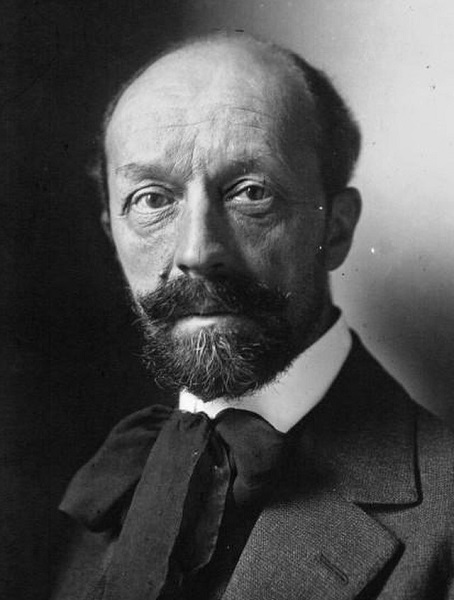Born in Tourcoing, April 5, 1869
Died in Royan, Aug 23, 1937
- Albert Roussel had an unusual trajectory to music in that he didn’t pursue composition until his mid-twenties. Though he had music instruction as a child, he was more interested in mathematics. In 1887, Roussel passed the entrance exam for the French Navy and spent the next several years at sea.
- At age 25, Roussel decided to become a musician and subsequently resigned from the Navy. He moved to Paris and eventually entered the Schola Cantorum, where he studied under Vincent d’Indy.
- Roussel soon became a teacher at the institution himself and taught notable names such as Erik Satie and Edgard Varèse.
- While Roussel’s early works show the influence of impressionism and neoclassicism, both of which were popular styles of the time, the composer came to develop a unique independent musical voice, writing music “his music harmonically spiced and rhythmically vigorous.”1
- WWI broke out just as Roussel was gaining notoriety as a composer. He joined the cause as a transport officer on the front and only left in 1918 for health reasons.
- His experience in the war made Roussel all the more convinced of his destiny as a composer and significantly changed his aesthetic. From then on, he pursued “purer music: less cluttered, cleansed, and more personal.”2
- Food for thought – the reason why Roussel is not as well known as his French contemporaries, such as Debussy or Ravel, is because he created such a unique musical idiom that was not carried on by later generations – he developed a “unique personal language in which he was to have no followers.”3
Learn More
Sources
- Nicole Labelle, “Roussel, Albert,” Grove Music Online (2001), accessed April 11, 2023, https://www.oxfordmusiconline.com/grovemusic/view/10.1093/gmo/9781561592630.001.0001/omo-9781561592630-e-0000023971.
- Ibid.
- Georg Predota, “Albert Roussel,” Interlude (2019), accessed April 11, 2023, https://interlude.hk/albert-roussel/.

